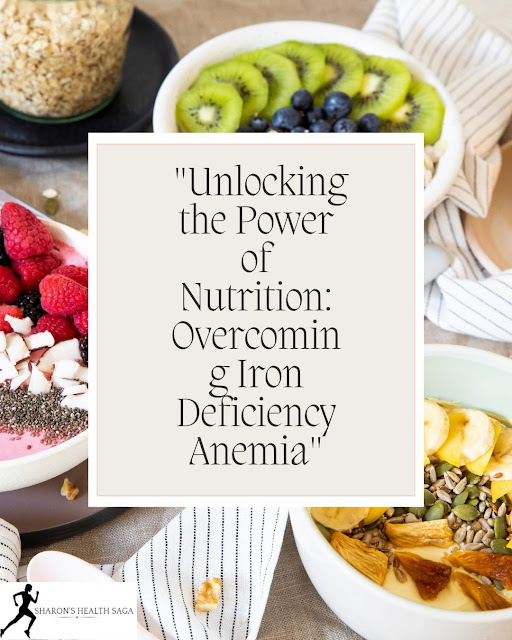Introduction:
Anemia caused by iron deficiency is a common nutritional disorder affecting millions of people worldwide. It happens when your body does not have enough iron in it. Iron is a necessary nutrient for the synthesis of hemoglobin, the protein that carries oxygen in our blood. The good news is that dietary modifications can frequently prevent or treat iron deficiency anemia, despite the potential for significant consequences. We'll discuss the value of iron, the benefits of keeping appropriate levels of iron in the body, and how to use a nutrient-dense diet to treat anemia in this blog.
An important nutrient that is critical to our general health is iron. This is why it's so important:
Oxygen Transport:
In order for the protein hemoglobin in red blood cells to bind with oxygen, iron is necessary. Your body cannot efficiently transport oxygen without enough iron, which causes weakness, exhaustion, and dyspnea.
Energy Production:
The metabolism of energy includes iron. It aids in your body's ability to produce the energy required for optimal operation. Lethargic and less productive behavior can be caused by low iron levels.
Support for the Immune System:
Iron is required for a healthy immune system. It supports a robust immune system and aids in the battle against infections.
The Advantages of Maintaining Iron Levels in a Healthy Range:
Enhanced Energy:
Having enough iron in your body gives you more energy, which makes it easier to stay focused and active.
Enhanced Cognitive Performance:
Adequate iron intake is necessary for healthy brain development. It promotes mental clarity and alertness.
Enhanced Physical Performance:
Adequate iron levels help athletes and active people perform better overall by increasing their endurance.
Improved Immunity:
Iron boosts immunity, making it easier for your body to fight off diseases and infections.
The disadvantages of low iron levels:
Fatigue and Weakness:
Two of anemia's main symptoms are persistent fatigue and low energy.
Cognitive Impairment:
Anaemia can impair cognitive function, making it harder to focus and remember things.
Impaired Immunity:
Being more vulnerable to infections is a result of a compromised immune system.
Pale Skin and Cold Extremities:
Iron deficiency can result in cold hands and feet as well as pale skin.
Methods for Treating Anemia with a Nutritional Diet:
Iron-Rich Foods:
Include in your diet foods high in non-heme iron (found in plant-based sources) and heme iron (found in animal products). Lean meats, shellfish, beans, lentils, spinach, and fortified cereals are a few examples.
Vitamin C:
Eat foods high in vitamin C, such as oranges, strawberries, and broccoli, together with meals high in iron to improve the absorption of iron.
Steer clear of iron blockers:
Some drugs, such coffee and calcium, can prevent the body from absorbing iron. Eat these apart from foods high in iron.
Iron Supplements:
Doctors may advise taking iron supplements in specific situations. But before beginning any supplementation, speak with a medical expert.
Conclusion:
Insufficient iron Anemia is a disorder that can seriously affect your overall health and wellbeing. It is impossible to overestimate the benefits of keeping good iron levels, which include enhanced immunity and more vitality. You may fight anemia and harness the power of nutrition for a longer, healthier life by eating a balanced, nutrient-dense diet that includes foods high in iron and other complementing nutrients. It is crucial to speak with a healthcare provider if you think you may have anemia or are at risk so they can properly diagnose you and provide treatment recommendations.













.png)
Comments
Post a Comment